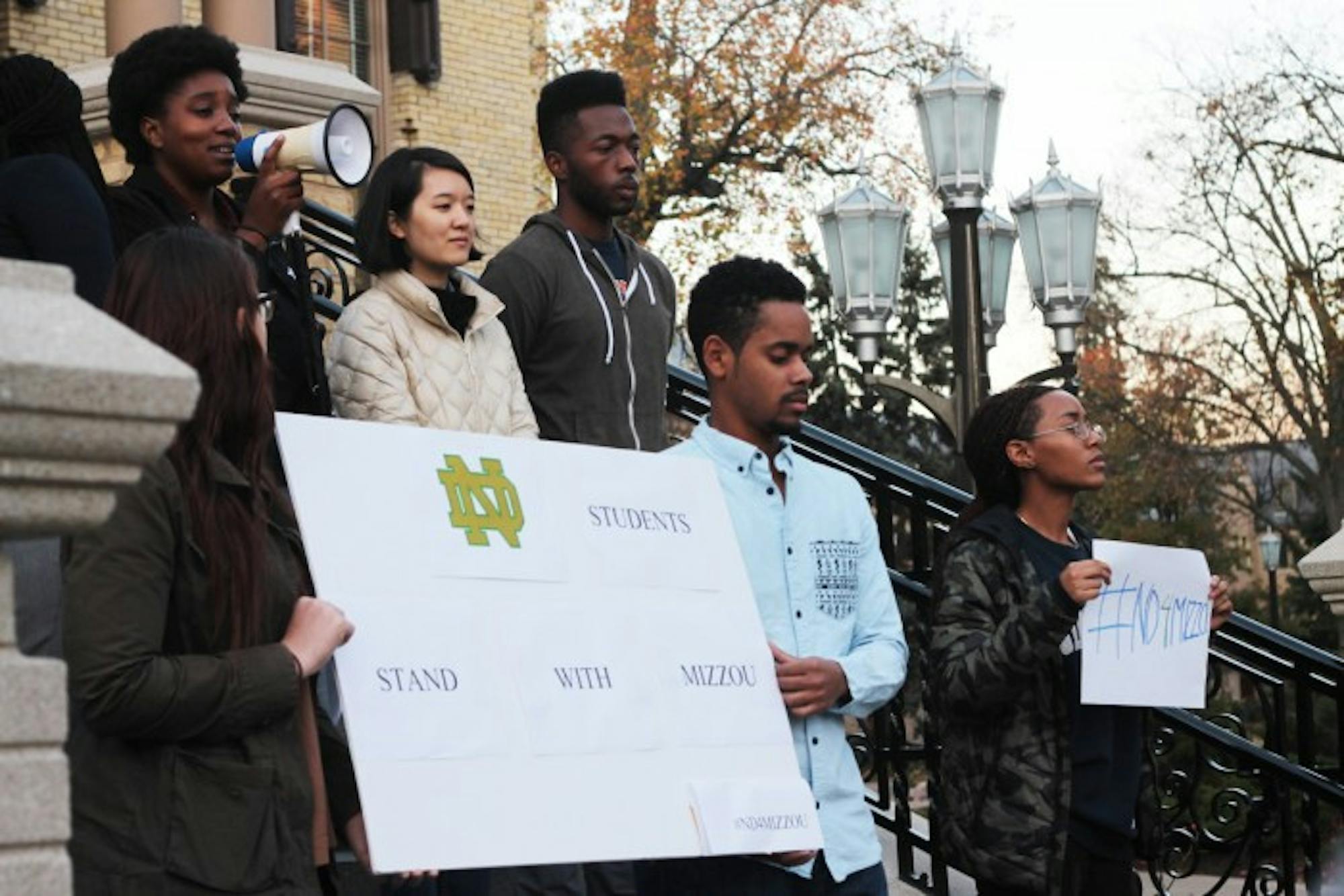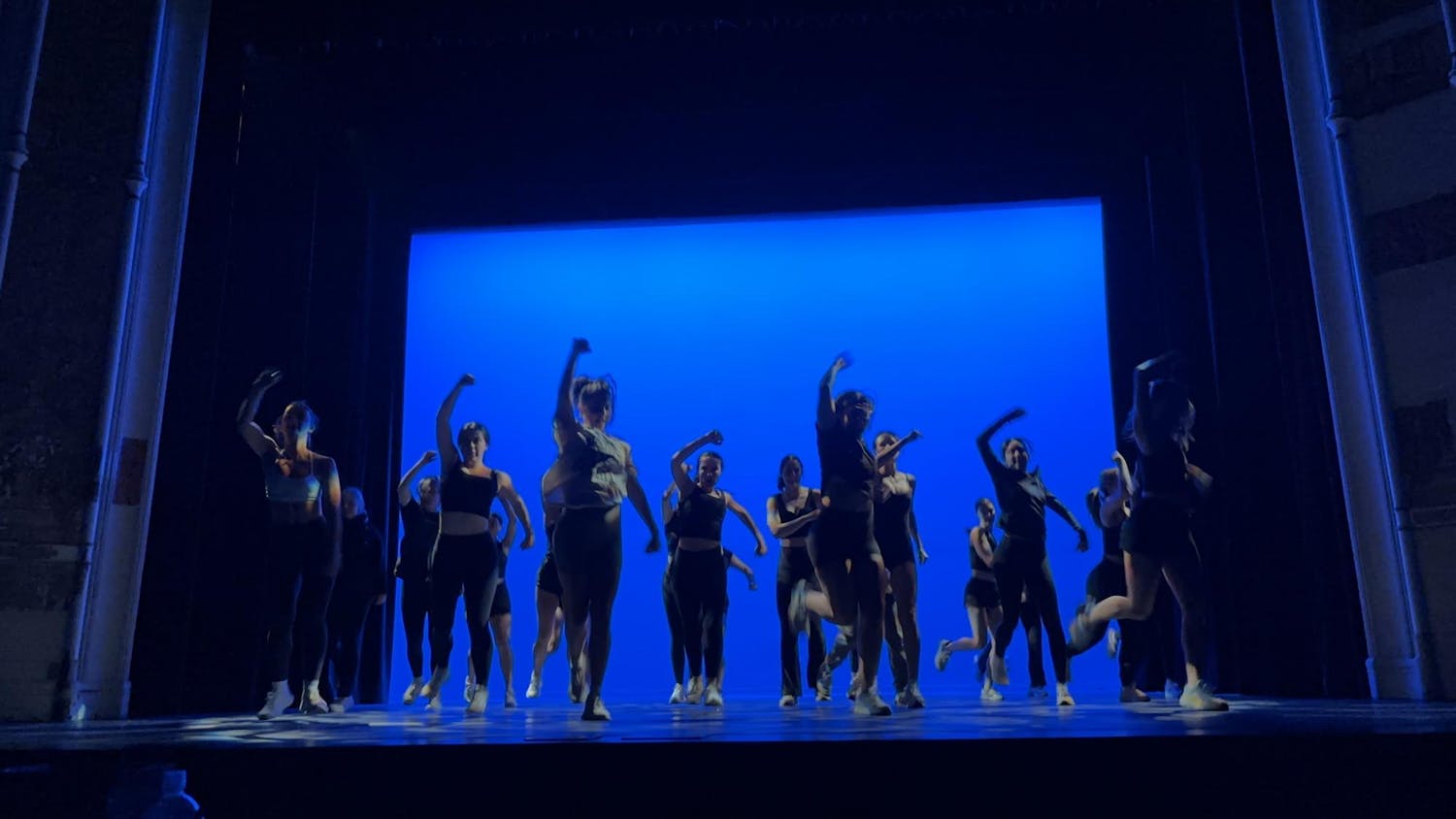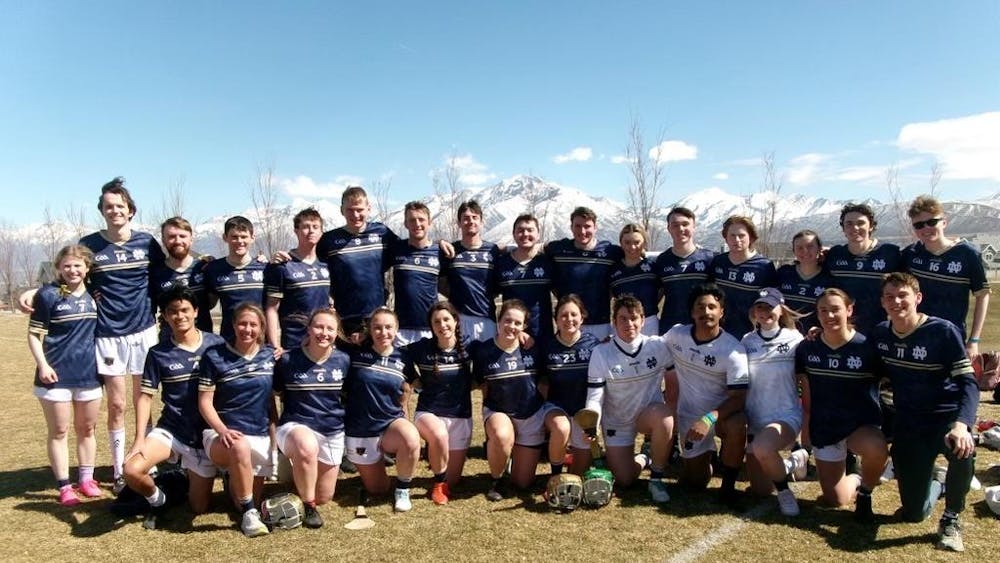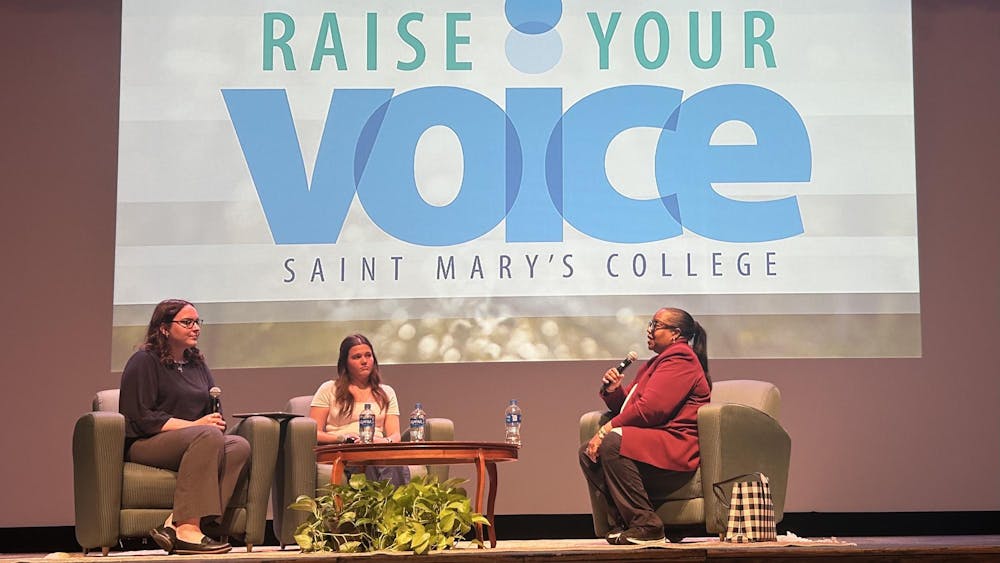Following weeks of student protests against racial discrimination at the University of Missouri, a group of at least 75 Notre Dame students and faculty gathered outside of Main Building on Wednesday to demonstrate their support for students of color at the University of Missouri.
Standing on the front steps of Main Building, student leaders from various multicultural groups said the events of the past week at Missouri — culminating in the Missouri football team’s announcement that they would boycott this weekend’s game and the resignation of Missouri’s president — affect not only students of the University of Missouri, but Notre Dame students as well.
Senior Ray'Von Jones, one of the organizers for the event, called on members of the Notre Dame community “to stand up and speak out” against the racial threats and unrest at Missouri.
“Far too often we are silent. … Part of standing in solidarity is also getting our voices heard as well,” Jones said.
Following a reading of quotes about the experiences of students of color, event organizer and senior Geraldine Mukumbi invited her fellow organizers as well as those in attendance to share their reasons for participating in the demonstration.
“Why are you all here?” Mukumbi asked the crowd. “What made you decide to come?”
Passing around a megaphone, students named a variety of reasons for attending, from feeling exasperated with discrimination at Notre Dame to having personal connections with Missouri students affected by the disturbances on campus.
“I’m here because I had friends at Mizzou who were afraid to leave their homes today, and that pains me greatly,” senior Rachel Wallace, another organizer of the event, said.
The last to speak about her motivation for attending, Jones said she wanted to participate because she thinks that while there are current efforts at Notre Dame to address issues of racial discrimination, there is still more that needs to be done in order to make Notre Dame an inclusive campus.
“I’m here because I know that there are people on this campus that care about these things. You all being here today is a really strong confirmation of that,” Jones said. “I know that there’s been a lot of work done on many levels to make this place safe for us.
“But with that said we can’t be complicit; we can’t be silent, and we have to speak up about these things.”
The demonstration concluded with a procession to the Great Hall of O’Shaughnessy, where students continued the discussion about race relations in smaller, more informal groups.
In an interview following the demonstration, Wallace said her personal connection to students on Missouri’s campus made the problem of racial discrimination more immediate to her.
“We hear about a lot of racial tension on college campuses all the time,” Wallace said. “It’s always very real, but it’s solidified when someone you know is in the mix.”
The events at Missouri reveal that outbreaks of racial discrimination and violence are an ongoing problem on college campuses, Wallace said, and that racial tensions are not confined to any one locale.
“This could happen here, this could happen everywhere,” Wallace said. “When you read back on the Mizzou story, there’re a lot of things that have happened on that campus that are really crazy in terms of racial relations. But things on our campus happen that are similar.
“We have a lot of microaggressions rather than macro-aggressions, but I still think they’re a huge problem.”
Freshman Bi’unca Redmon, who was also involved in organizing the event, said Notre Dame is not alone in demonstrating to express concern over what is happening at Missouri. Around the country students are taking to social media to voice support for students of color at Missouri, she said.
“There are hashtags going around in solidarity with Mizzou, #ND4Mizzou or whoever for Mizzou,” Redmon said. “No matter what happens we’re behind them, and to the best of our abilities, we won’t let anything happen to them.”
Redmon also said she hopes the demonstration will act as a “catalyst for change” and will prompt discussions about race relations both at Missouri and here at Notre Dame.
Echoing Redmon’s sentiments, assistant professor of engineering Melissa Berke said events such as the one Wednesday evening offer students and faculty the opportunity to unite behind a common cause and confront discrimination on campus head-on.
“Movements like this on campus are super crucial in having the ability to have a voice, to be able to get together, assemble and have a conversation together about important things going on on campus,” Berke said.
She said these types of movements have the effect of bringing people from a variety of backgrounds together who might not otherwise have any interaction.
“Otherwise we kind of all live in our own worlds,” Berke said. “I don’t actually even recognize any of the students here, which I think is great. It’s an intersection between people that you don’t know but who share a common belief and common support.
“If you don’t bring people together from across campus, then what hope do we have across the country?”













